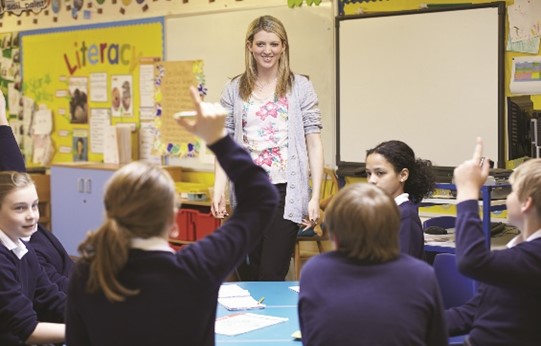
Pathways to Impact Community-Focused Schools
What happens when research doesn’t just live in journal articles but begins to shape policy, influence practice, and amplify community voices? That’s the journey being undertaken by researchers in the Education department at Wrexham University, who are investigating through several collaborative research projects what “community-focused schools” really look like and how they can be strengthened to support children, young people, families, and the community more effectively.
Understanding What’s Already Happening
Back in 2023, a team of researchers—Dr Sue Horder, Tomos Gwydion ap Sion, Dr Karen Rhys Jones, Lisa Formby, and Gillian Danby—alongside colleagues from Bangor, Swansea, Cardiff Met, and UWTSD, were commissioned by Welsh Government to explore how schools in Wales align with the practices, values, and beliefs of community schools, and to identify ways to support the development of a community schools approach across Wales.
Wrexham and Bangor Universities, both based in North Wales, carried out two pieces of research. Firstly, all maintained schools in Wales were invited to take part in an online survey. The aim? To understand how schools define the concept of a “community school,” what strategies they’re using, and where gaps might exist between aspiration and implementation. Second, researchers at Wrexham University conducted focus groups with young people aged 11–17 in a secondary school to explore their views, experiences, aspirations, and expectations of school life in the context of their community environment.
This initial project will result in three academic journal articles (due in early 2026) and a presentation at this year’s British Educational Research Association (BERA) conference. But the work hasn’t stopped there—and the real impact story is just beginning.
From Insight to Action
Building on their findings, the Wrexham team—now including Nikki Ewing—successfully applied for a Learned Society of Wales Research Workshop Grant and were also awarded seed funding from the Faculty of Social and Life Sciences. These grants supported three workshops that brought together multi-agency professionals: teachers, youth workers, family engagement officers, community school managers, local voluntary organisations, Welsh Government advisors, and academics from other universities.
These sessions were not about delivering findings—they were about co-creating the next steps. Participants shared their views and lived experiences, helping shape the direction of future research in a way that feels grounded, relevant, and truly community led.
On the Pathway to Impact
Participants from these workshops including academics from Swansea University and the UWTSD formed a research team and a project steering group to develop a major funding bid for a three-year collaborative study. The focus was to go deeper into the role of community focused schools in addressing disadvantage, and in ensuring that children and young people are supported holistically—not just academically. The team are currently exploring funding pathways.
Crucially, this pre-research engagement has helped shape priorities and questions, ensuring that future research continues to reflect the needs and insights of those working directly in and with schools and communities, not just those within academia or government.
From this work, Lisa Formby is currently leading two research studies to explore the roles of Community Focused School Managers (CFSMs) and to gather a range of perspectives and experiences of Family and Community Engagement in schools in Wales. Data collection will capture the views and experiences of school staff, CFSMs, family engagement officers, multi-agency professionals, parents and guardians, pupils, and community members.
Why This Matters
These projects support the Welsh Government’s broader vision for Educational Equity, aiming to give every child the opportunity to thrive regardless of background. Community-focused schools—when designed well—can be a vital part of that vision. They connect families, services, and opportunities to education. They wrap around children and young people. They put relationships and care at the heart of school life.
And that’s what makes this research so exciting. It’s not just about describing the current landscape—it’s about shaping what comes next. With a strong foundation of academic credibility, multi-agency input, and public engagement, these projects are well on their way to delivering tangible, long-term impact—not just in policy papers, but in schools, communities, and everyday lives across Wales.



